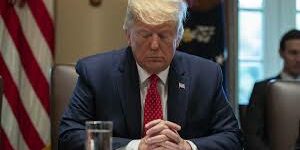Will the Trump presidency lead to renewed dialogue between Catholics and Evangelicals?

“Stand up and be counted.” In the lead-up to the 2018 midterm elections, one might find this pithy phrase in the voter guides produced by the Christian Coalition, American Family Association or other evangelical political action groups that compose the “religious right.” These days, such guides do not assess candidates purely on their religious convictions; they are as likely to endorse a Catholic candidate as an evangelical, provided the politician is a reliable vote against abortion.
It has not always been so. “Stand up and be counted” was the slogan the National Association of Evangelicals adopted in its effort to defeat John F. Kennedy in 1960. Letters to constituents were forthright about the place of religion in the dispute: “If a Roman Catholic is elected President—what then?” they wrote. The answer: The United States would “no longer be recognized as a Protestant nation.”
There has been a revolution in Catholic-evangelical relations since Mr. Kennedy was compelled to defend his faith to Baptist pastors that year—a change mostly for the better. By making common cause on religious liberty, marriage and, above all, abortion, evangelicals have become familiar with Catholic ways of thinking and arguing. That familiarity has diminished evangelical contempt for the church of Rome, even if significant theological differences remain.



